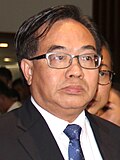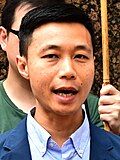| |||||||||||||||||||||||||||||||||||||||||||||||||||||||||||||||||||||||||||||||||||||||||||||||||||||||||
All 90 seats to the Legislative Council 46 seats needed for a majority | |||||||||||||||||||||||||||||||||||||||||||||||||||||||||||||||||||||||||||||||||||||||||||||||||||||||||
|---|---|---|---|---|---|---|---|---|---|---|---|---|---|---|---|---|---|---|---|---|---|---|---|---|---|---|---|---|---|---|---|---|---|---|---|---|---|---|---|---|---|---|---|---|---|---|---|---|---|---|---|---|---|---|---|---|---|---|---|---|---|---|---|---|---|---|---|---|---|---|---|---|---|---|---|---|---|---|---|---|---|---|---|---|---|---|---|---|---|---|---|---|---|---|---|---|---|---|---|---|---|---|---|---|---|
| |||||||||||||||||||||||||||||||||||||||||||||||||||||||||||||||||||||||||||||||||||||||||||||||||||||||||
| |||||||||||||||||||||||||||||||||||||||||||||||||||||||||||||||||||||||||||||||||||||||||||||||||||||||||
The 2025 Hong Kong Legislative Council election is a general election that will be held on 7 December 2025 for the 8th Legislative Council of Hong Kong. Under the new electoral system introduced in 2021, 90 seats to the Legislative Council include 40 seats elected by the 1,500-member Election Committee, 30 seats of trade-based indirectly elected functional constituencies (FCs), and 20 seats of directly elected geographical constituencies (GCs).
The current election laws are considered by numerous international governments and NGOs to be neither free nor fair.[1][2][3] Only pro-Beijing "patriots" are allowed to run, the majority of opposition pan-democratic members were banned, jailed, or forced into exile. Virtually all opposition parties were intimidated into dissolving by the government and the police.[4] Only 20 of the Council's 90 seats are directly elected, with the remaining 70 indirectly elected by selected groups of professionals and corporate representatives, resulting in a disproportionate two-tier democracy and very limited popular representation.
Background
[edit]Past legislative session
[edit]The 7th Legislative Council elected in 2021 was the first after the national security law and electoral changes were imposed by the Chinese government. Without any legislator explicitly from the pro-democracy camp, the legislature packed with pro-Beijing members was criticised to lack meaningful discussions and debates, while newcomers of the Legislative Council resorted to politically correct measures only, such as repeating speeches by Chinese officials.[5] Ming Pao reported in August 2023 that amongst the 24 government bills passed since the beginning of the legislative term, including the domestic security law which was fast-tracked,[6] 16 of those were approved without a quorum,[7] prompting concerns of MP's performance.[8] Andrew Leung, President of the Legislative Council, denied claims that the chamber rubber-stamped bills and defended it as highly efficient.[9] However, an opinion poll by pro-government party and think tank Path of Democracy said 48.1% of the interviewed expressed dissatisfaction with legislators' performance and only 29.4% were content.[10]
Apart from evaluation from the own party, it was also reported that government officials were involved in assessing the performance of the legislators in the run-up to the election, an act seen as unprecedented before the "patriot-only" principle was implemented.[11]
Smart ballot box
[edit]In December 2024, the government announced a series of new measures to be implemented in this election. The Improving Electoral Arrangements (Consolidated Amendments) Bill contained a plan to introduce "smart ballot boxes" to ensure ballots were validly marked.[12] While the Constitutional and Mainland Affairs Bureau said the scanners would "streamline and enhance" procedures while ensuring that "cardinal election principles" such as voting confidentiality would be upheld, some lawmakers expressed concerns over the implications of compromising vote secrecy.[13] Although insisting the voter rights would be protected as voters would not be identified, the government withdrew the proposal less than a week later after "considering the views of legislators".[14] The bureau said it attaches great importance to the views and is willing to "accept well-intentioned advice", while the smart ballot boxes will still be made available for voters who choose to use them.[15]
Unusually quiet campaign
[edit]Sing Tao Daily reported that as many as one-third of the 89 incumbents "may not be able to stay", including Paul Tse, who was named for making "politically incorrect remarks", and Lam So-wai for her poor performance. So Cheung-wing, who did not vote in the second reading of the security bill, was also said to be leaving the legislature.[16] Sources added that age and intra-party succession may contribute to the retirement of others.[16] It is expected that those implicated in rumoured sex scandals or other reported misconduct could be barred from running again.[17][18]
Four months prior to polling day, pre-campaign activities were "eerily calm" without any signs of preparations, following rumours that the authorities had not yet decided on "blessing" the candidates to enter the race. The by-elections for the Election Committee, which would select 40 of the 90 MPs, were also without any electioneering. It was widely circulated that legislators that had an unsatisfactory performance would not be approved by the Chinese authorities for a new term, and that the Chief Executive could single-handedly block any members from running for re-election. Senior officials of the government also had reportedly submitted a report on the performances of members, which could play a role in Chief Executive's decision.[19]
End of pro-democracy camp
[edit]The implementation of the "Patriots administering Hong Kong" principle reduced the portion of elected seats to around 22%, which was considered by democratic watchdogs as a decrease in democratic values.[2][3] Hong Kong Economic Journal said some members from the business sector recommended Beijing authorities to draw up a timeline to gradually reintroduce more elected seats in order to improve Hong Kong's international image and align with the Basic Law article. The businessmen also reportedly trusted the new chamber would not be undermined when "anti-China" opposition voices would remain extra-parliamentary by the vetting committee.[4] Third Side, the only self-claimed moderate group in the Legislative Council, and Path of Democracy hoped an electoral reform would be initiated by the government in due course.[20]
Once the largest party in the Legislative Council and the flagship in the pro-democracy camp, the Democratic Party is expected to dissolve in 2025. Media sources indicated Chinese government has pressed for the closure of the "worthless" party, who was unable to run in the 2021 and 2023 "patriot-only" elections.[21] Reportedly also under pressure, the League of Social Democrats disbanded in late June. The pro-democracy camp is considered to have come to an end without any active political groups.
Contesting parties and candidates
[edit]- Democratic Alliance for the Betterment and Progress of Hong Kong (DAB)
- Business and Professionals Alliance for Hong Kong (BPA)
- Hong Kong Federation of Trade Unions (FTU)
- Liberal Party
- New People's Party (NPP)
- Roundtable
- Federation of Hong Kong and Kowloon Labour Unions (FLU)
- New Prospect for Hong Kong
- Third Side: Chairman Tik Chi-yuen, the sole self-branded moderate legislator, will seek re-election at his Social Welfare constituency. The party aims at winning two geographical constituencies as a breakthrough.[22]
- Path of Democracy: Convenor Ronny Tong said he expected party members to run in the election.[10]
Turnout
[edit]The previous Legislative Council election recorded a historic low turnout of 30.2% despite widespread campaign. In this election the government allocated 1.28 billion dollars for advertising, marking an increase of over 50%. However, pro-Beijing side expected another election with limited participation due to the National Games of China, taking place in November and December to be held in Guangdong, Hong Kong, and Macau for the first time, shifting the public's attention. Aiming for at least a turnout of 30%, they believed a costly advertising campaign, similar to the 2023 local elections, could be criticized as a waste of public money when the government's deficit remains troublesome.[23][24][25] Erick Tsang, the constitutional affairs secretary, said the government does not have a benchmark for the turnout.[26]
Notes
[edit]- ^ a b c d Did not run in Geographical Constituencies
References
[edit]- ^ "Joint Statement on Hong Kong Legislative Council Elections". United States Department of State. Archived from the original on 2022-03-14. Retrieved 2021-12-21.
- ^ a b "Statement on the 2021 Hong Kong Legislative Council Elections". Inter-Parliamentary Alliance on China. 19 December 2021. Archived from the original on 2025-02-10. Retrieved 2025-05-19.
- ^ a b "Hong Kong: Proposed Electoral Changes an Assault on Democratic Principles". Freedom House. 9 March 2021. Archived from the original on 2025-03-06. Retrieved 2025-05-19.
- ^ a b "今日信報 - 時事評論 - 商界獻計北京 增直選議席贏好感 - 余錦賢 - 香港脈搏". 信報網站 hkej.com (in Chinese (Hong Kong)). Retrieved 2025-03-03.
- ^ "立法會討論變「黨八股」 官場中人:反對派清零 議員寧願留在舒適圈 - 光傳媒 Photon Media". Photon Media (in Chinese (Taiwan)). 15 August 2024. Retrieved 2025-01-20.
- ^ Ching, Frank (25 March 2024). "Is Hong Kong headed for a rubber-stamp legislature?". The Japan Times. Retrieved 2025-01-20.
- ^ "政府法案2/3表決 參與議員未過半 謝偉俊憂遭法律挑戰 劉健儀:勿覺得不爭議議案就可少人". Ming Pao (in Traditional Chinese). Retrieved 2025-01-20.
- ^ "「愛國者治港」下的立法會 議員表現再受爭議". RFA. 16 August 2023.
- ^ "梁君彥指今屆議員認真審議法案 並非橡皮圖章". Now News (in Chinese (Hong Kong)). 4 January 2025. Retrieved 2025-01-20.
- ^ a b "民主思路民調:近半不滿立會表現 湯家驊稱成員有意選 - 20250313 - 港聞". 明報新聞網 - 每日明報 daily news (in Traditional Chinese). Retrieved 2025-03-19.
- ^ "傳高官有份「評價」 影響議員去留?". 香港經濟日報HKET (in Traditional Chinese). Retrieved 2025-03-27.
- ^ "Govt mulling introducing smart ballot boxes and expanding vote counting machines". The Standard. Retrieved 2025-01-20.
- ^ Lee, James (17 December 2024). "John Lee vows 'satisfactory' elections after concerns over 'smart' ballot boxes". Hong Kong Free Press HKFP. Retrieved 2025-01-20.
- ^ "Hong Kong shelves plan to use 'smart ballot boxes' for elections". South China Morning Post. 18 December 2024. Retrieved 2025-01-20.
- ^ Lee, James (18 December 2024). "Hong Kong scales back 'smart' ballot box plan". Hong Kong Free Press HKFP. Retrieved 2025-01-20.
- ^ a b "完善選舉|傳「西環契仔」下屆無得留低 建制傳媒指立法會議員「多一個唔多」". Chaser News (in Chinese (Taiwan)). 23 April 2024. Retrieved 2025-01-20.
- ^ Pao, Ming. "時事中文:「桃色議員」無得留低". www.mingpaocanada.com. Retrieved 2025-03-27.
- ^ 黃雲娜 (20 January 2024). "愛國者治港|除了愛國,治港者的私德重要嗎?". 香港01 (in Chinese (Hong Kong)). Retrieved 2025-03-27.
- ^ 李先知 (23 July 2025). "聞風筆動:選委會93空缺補選提名啟動 議員指異常平靜". Ming Pao.
- ^ 何夏怡 (25 February 2025). "新思維盼政府找共識推「雙普選」 目標12月立會選舉增直選議席". 香港01 (in Chinese (Hong Kong)). Retrieved 2025-03-03.
- ^ "聞風筆動:民主黨人去年底收「傳話人」信息 解散「瓜熟蒂落」". Ming Pao Daily (in Traditional Chinese). 20 February 2025. Retrieved 2025-02-21.
- ^ "【Emily】新思維備戰立選 盼多取直選兩席 擬6月搞籌款晚宴 目標百萬元支持競選". 明報新聞網 - 每日明報 daily news (in Traditional Chinese). 26 February 2025. Retrieved 2025-03-04.
- ^ "今日信報 - 時事評論 - 立會選舉撞上全運會 建制派預期投票率低 - 余錦賢 - 香港脈搏". 信報網站 hkej.com (in Chinese (Hong Kong)). Retrieved 2025-03-03.
- ^ 潘耀昇 (17 March 2025). "立法會選舉劍指三成投票率 或推獨立候選人谷「黃票」|政圈風聲". 香港01 (in Chinese (Hong Kong)). Retrieved 2025-04-23.
- ^ "今日信報 - 時事評論 - 立會選舉目標三成投票率 樽頸難突破 - 余錦賢 - 香港脈搏". 信報網站 hkej.com (in Chinese (Hong Kong)). Retrieved 2025-04-23.
- ^ "立法會選舉︱政制局稱投票率沒有設硬指標 正研究鄰近邊境投票站位置". www.singtaousa.com (in Chinese). 8 April 2025. Retrieved 2025-04-23.








